Professor Amanda McCann

Dr. Amanda McCann PhD, is a Principal Investigator and Senior Conway Fellow in the UCD Conway Institute of Biomolecular and Biomedical Research in University College Dublin (UCD), Ireland. She is also Professor in the UCD School of Medicine and was Head of Pathology within the School from 2015-2018. Her group’s specific cancer research interests are focused on understanding the mechanisms underlying chemoresistance for women presenting with triple negative breast cancer (TNBC) including comparative oncology approaches. In this regard she has published extensively in the area of cancer cell senescence and the role of extracellular vesicles/exosomes in the chemoresistant phenotype. She was also a member of the founding committee in the establishment of the International Cellular Senescence Association (ICSA).
In 2017, Amanda established the UCD Centre in Translational Oncology (UCTO) with an official launch in September 2018. In 2016, she established and currently chairs the UCD Patient Voice in Cancer Research (PVCR) committee made up of patients, researchers and health care professionals that aims to engage the general public and cancer survivors in cancer research ensuring a two-way dialogue between patients and researchers. In December 2019, she was awarded a VIA (Values in Action) award for her work in this regard.
Within UCD, Amanda has been on an expert panel for the Rapid Realist Review (RRR) detailing the mechanisms that enable the reciprocal involvement of seldom heard groups in health and social care. This initiative is funded through a HRB Ignite award, where UCD in collaboration with 10 partner organisations is developing a network and resource platform to firmly embed patient and public involvement (PPI) in UCD’s research learning and teaching activities. In relation to patient advocate groups, she previously was a Co-Director of IPPOSI and research advisor to Debra Ireland. In 2017, Amanda was elected President of the Irish Association for Cancer Research (IACR), and has led on patient involvement with cancer researchers across Ireland as part of the annual IACR conferences. As President of the IACR, she represented the association on the European Association for Cancer Research (EACR) National Societies Committee (2018) and was previously Honorary Secretary of the IACR 1998-2000.
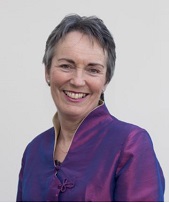 Dorothy’s own experience as a cancer patient and survivor has enhanced her awareness of how different social and economic conditions can affect the patient experience during and after a cancer treatment journey. Her own cancer diagnosis has greatly enhanced her understanding of this journey from an equality of condition perspective. Having spent almost 30 years as a violin teacher, performer and orchestral conductor, Dorothy’s work now focuses on research in Equality Studies and Social Justice Issues. Dorothy is an IRC Government of Ireland PhD Research Scholar based in University College Dublin and at the University of Music and Performing Arts in Vienna. She has lectured for 25 years at the DIT Conservatory of Music, (now TU Dublin), and has developed deficit-oriented music programmes with the National Concert Hall Dublin, Education Office. Dorothy is a passionate sailor and hillwalker and continues to enjoy regular mountain walking and coastal cruising. As a member of the management and steering committee, Dorothy hopes that her experience, knowledge and research in Equality Studies will help the PVCR to develop an inclusive, vibrant and national constituency that will enable a symbiotic working relationship between patient and researcher.
Dorothy’s own experience as a cancer patient and survivor has enhanced her awareness of how different social and economic conditions can affect the patient experience during and after a cancer treatment journey. Her own cancer diagnosis has greatly enhanced her understanding of this journey from an equality of condition perspective. Having spent almost 30 years as a violin teacher, performer and orchestral conductor, Dorothy’s work now focuses on research in Equality Studies and Social Justice Issues. Dorothy is an IRC Government of Ireland PhD Research Scholar based in University College Dublin and at the University of Music and Performing Arts in Vienna. She has lectured for 25 years at the DIT Conservatory of Music, (now TU Dublin), and has developed deficit-oriented music programmes with the National Concert Hall Dublin, Education Office. Dorothy is a passionate sailor and hillwalker and continues to enjoy regular mountain walking and coastal cruising. As a member of the management and steering committee, Dorothy hopes that her experience, knowledge and research in Equality Studies will help the PVCR to develop an inclusive, vibrant and national constituency that will enable a symbiotic working relationship between patient and researcher.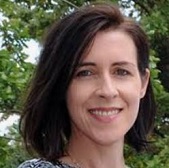 Trish is Assistant Professor in Nursing at UCD School of Nursing, Midwifery and Health Systems. Her involvement with this group is based on her extensive past experience as an oncology nurse and current roles as Programme Director of the Cancer Nursing Programme and involvement in research projects related to cancer care.
Trish is Assistant Professor in Nursing at UCD School of Nursing, Midwifery and Health Systems. Her involvement with this group is based on her extensive past experience as an oncology nurse and current roles as Programme Director of the Cancer Nursing Programme and involvement in research projects related to cancer care.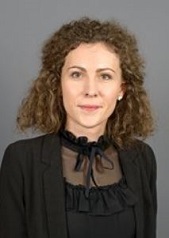 Melinda is a childhood cancer researcher with medical background at Systems Biology Ireland and also an Assistant Professor in Pathology at UCD School of Medicine. Melinda's ultimate goal is to develop more effective and less toxic treatments for children with highly aggressive neuroblastoma and Burkitt's lymphoma, by keeping the interests of the sick children and their families in focus. Melinda hopes to shape the research questions together with clinicians, patients and their families, so that the results will be the most beneficial to children; moreover, to develop a meaningful dissemination strategy of the scientific results to the patients, their families and the public.
Melinda is a childhood cancer researcher with medical background at Systems Biology Ireland and also an Assistant Professor in Pathology at UCD School of Medicine. Melinda's ultimate goal is to develop more effective and less toxic treatments for children with highly aggressive neuroblastoma and Burkitt's lymphoma, by keeping the interests of the sick children and their families in focus. Melinda hopes to shape the research questions together with clinicians, patients and their families, so that the results will be the most beneficial to children; moreover, to develop a meaningful dissemination strategy of the scientific results to the patients, their families and the public.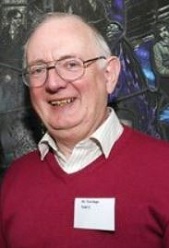 retired accountant and father of three from Co. Meath, Tom was diagnosed with prostate cancer 10 years ago, aged 62, when a routine blood test showed an elevated prostate specific antigen reading. A subsequent biopsy revealed that he had low-grade prostate cancer. He was given the option of surgery to remove the prostate, or to go on active surveillance. He decided to follow active surveillance. He has been on active surveillance for ten years, has had three further biopsies and one mri. The good news is that the prostate cancer has not spread. He was invited to join the Irish Cancer Society’s peer to peer support service in 2013, where he also volunteered as a driver, bringing cancer patients to hospital for chemotherapy. He joined men against cancer (MAC) a prostate cancer support group and is now their secretary/treasurer. He is a patient representative on the NCCPS (National Cancer Control Programme) prostate update guidelines development group. He joined the Patient Coice in Cancer Research Committee in 2016 to promote the interaction between researches and patients in focusing on projects that will bring benefits to cancer patients.
retired accountant and father of three from Co. Meath, Tom was diagnosed with prostate cancer 10 years ago, aged 62, when a routine blood test showed an elevated prostate specific antigen reading. A subsequent biopsy revealed that he had low-grade prostate cancer. He was given the option of surgery to remove the prostate, or to go on active surveillance. He decided to follow active surveillance. He has been on active surveillance for ten years, has had three further biopsies and one mri. The good news is that the prostate cancer has not spread. He was invited to join the Irish Cancer Society’s peer to peer support service in 2013, where he also volunteered as a driver, bringing cancer patients to hospital for chemotherapy. He joined men against cancer (MAC) a prostate cancer support group and is now their secretary/treasurer. He is a patient representative on the NCCPS (National Cancer Control Programme) prostate update guidelines development group. He joined the Patient Coice in Cancer Research Committee in 2016 to promote the interaction between researches and patients in focusing on projects that will bring benefits to cancer patients.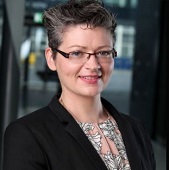 Sarah was diagnosed with cancer in 2016 while researching circadian rhythms as postdoctoral research associate at the University of Pennsylvania, USA. She moved back to Dublin part way through her treatment and has since become involved in patient advocacy. Sarah has worked in academic biomedical research for more than 15 years in Ireland, Germany and the USA. she took time out for cancer treatment and is now working part-time as a research scientist with UCD. Sarah hopes to bring the skills gained through her science career, including biomedical research, teaching and science communication, to the patient-research space in Ireland.
Sarah was diagnosed with cancer in 2016 while researching circadian rhythms as postdoctoral research associate at the University of Pennsylvania, USA. She moved back to Dublin part way through her treatment and has since become involved in patient advocacy. Sarah has worked in academic biomedical research for more than 15 years in Ireland, Germany and the USA. she took time out for cancer treatment and is now working part-time as a research scientist with UCD. Sarah hopes to bring the skills gained through her science career, including biomedical research, teaching and science communication, to the patient-research space in Ireland.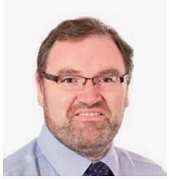 Neil O'Hare is a Professor of Health Informatics in UCD. He is also the Chief Information Officer for Children's Health Ireland which includes the new Children's Hospital. He is a Medical Physicist by background and was previously Chief Physicist in St. James's Hospital. Neil has been involved with Health IT for many years and has led on a number of health related IT projects at both hospital and national level. When not doing that he is often found out walking his two dogs or out on his bike on the back roads of Meath, where he has had some interesting experiences, but that's a story for another day!
Neil O'Hare is a Professor of Health Informatics in UCD. He is also the Chief Information Officer for Children's Health Ireland which includes the new Children's Hospital. He is a Medical Physicist by background and was previously Chief Physicist in St. James's Hospital. Neil has been involved with Health IT for many years and has led on a number of health related IT projects at both hospital and national level. When not doing that he is often found out walking his two dogs or out on his bike on the back roads of Meath, where he has had some interesting experiences, but that's a story for another day!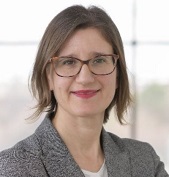 Maria is a research fellow in UCD. Her research, currently funded by Science Foundation Ireland, focuses on advanced prostate and breast cancer, specifically looking at mechanisms of resistance to current therapies with the remit of identifying better therapeutic strategies. Maria is a strong believer in the interaction between researchers and patients which will improve the quality of the research by keeping it in line with patients’ main interests and expectations.
Maria is a research fellow in UCD. Her research, currently funded by Science Foundation Ireland, focuses on advanced prostate and breast cancer, specifically looking at mechanisms of resistance to current therapies with the remit of identifying better therapeutic strategies. Maria is a strong believer in the interaction between researchers and patients which will improve the quality of the research by keeping it in line with patients’ main interests and expectations. 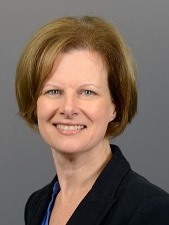 Elaine is Institute Manager (Communications & Education) at UCD Conway Institute. She has a background in science communication and more than fifteen years’ experience in facilitating the development and delivery of public engagement activities. These initiatives include public-patient involvement (PPI) in research as well as building capacity for public engagement practice through delivering science communication training for undergraduate and postgraduate students and postdoctoral researchers.
Elaine is Institute Manager (Communications & Education) at UCD Conway Institute. She has a background in science communication and more than fifteen years’ experience in facilitating the development and delivery of public engagement activities. These initiatives include public-patient involvement (PPI) in research as well as building capacity for public engagement practice through delivering science communication training for undergraduate and postgraduate students and postdoctoral researchers.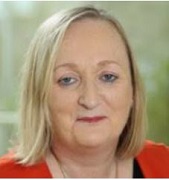 Mary was diagnosed with Acute Myeloid Leukaemia in December 2012. After initial chemotherapy treatment at St Vincent's Hospital was not successful, she was referred to St James Hospital for a stem cell (bone marrow) transplant in May 2013. Post-transplant, she contracted Graft vs Host Disease, on both an acute and chronic basis. That's the bad news.... the good news is that she is now back at work in UCD Communications, initially on a part-time basis and now full-time, since December 2014. The level of treatment and medication has reduced significantly and Mary received her all-clear in early 2018. She is an ardent supporter of research and has high hopes for this group. With the wide array of experience, skills and talent, covering the range of touchpoints with cancer, its diagnosis and its treatment, the group can achieve something tangible for cancer patients in the future.
Mary was diagnosed with Acute Myeloid Leukaemia in December 2012. After initial chemotherapy treatment at St Vincent's Hospital was not successful, she was referred to St James Hospital for a stem cell (bone marrow) transplant in May 2013. Post-transplant, she contracted Graft vs Host Disease, on both an acute and chronic basis. That's the bad news.... the good news is that she is now back at work in UCD Communications, initially on a part-time basis and now full-time, since December 2014. The level of treatment and medication has reduced significantly and Mary received her all-clear in early 2018. She is an ardent supporter of research and has high hopes for this group. With the wide array of experience, skills and talent, covering the range of touchpoints with cancer, its diagnosis and its treatment, the group can achieve something tangible for cancer patients in the future.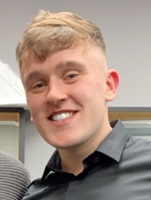
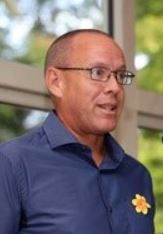 Ramon is a cancer survivor. He was diagnosed with testicular cancer in April 2006 and volunteers with the Irish Cancer Society in their peer support group. He is a passionate believer in the importance of the Patient Voice in Cancer Research. He wants information regarding cancer research and how patients can get involved to be widely available and easily accessible. He believes this will be of mutual benefit to researchers and patients and have a significant impact on the future development of treatments for all cancers.
Ramon is a cancer survivor. He was diagnosed with testicular cancer in April 2006 and volunteers with the Irish Cancer Society in their peer support group. He is a passionate believer in the importance of the Patient Voice in Cancer Research. He wants information regarding cancer research and how patients can get involved to be widely available and easily accessible. He believes this will be of mutual benefit to researchers and patients and have a significant impact on the future development of treatments for all cancers.